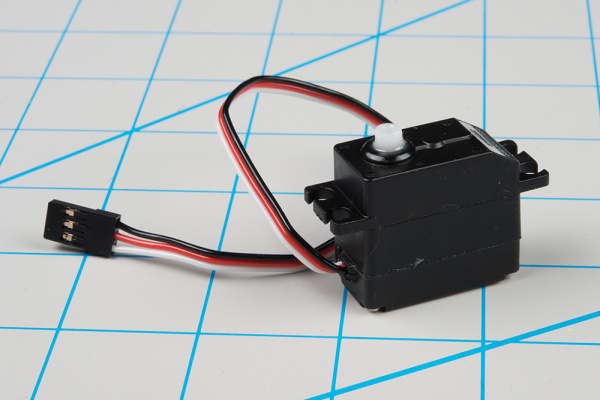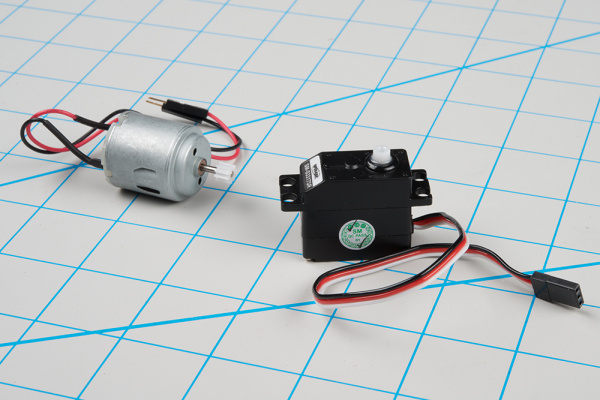Hobby Servo Tutorial
Introduction
Servo motors are an easy way to add motion to your electronics projects. Originally used in remote-controlled cars and airplanes, they now crop up in all sorts of other applications. They're useful because you can precisely control the positioning of these motors. Instruct them where to point, and they'll do it for you.
An ordinary DC motor has two hookup wires and simply turns continuously when power is applied. If you want it to spin in the opposite direction, you'll need to reverse the power. And if you want to know how far it has turned, you'll need to devise a way to measure that.
In contrast, you instruct a servomotor where to turn using carefully-timed pulses. The servo has three wires: power, ground, plus a third wire to carry the command pulses.
Suggested Reading
- An Introduction to Motors.
- Some background on Pulse Width Modulation.

